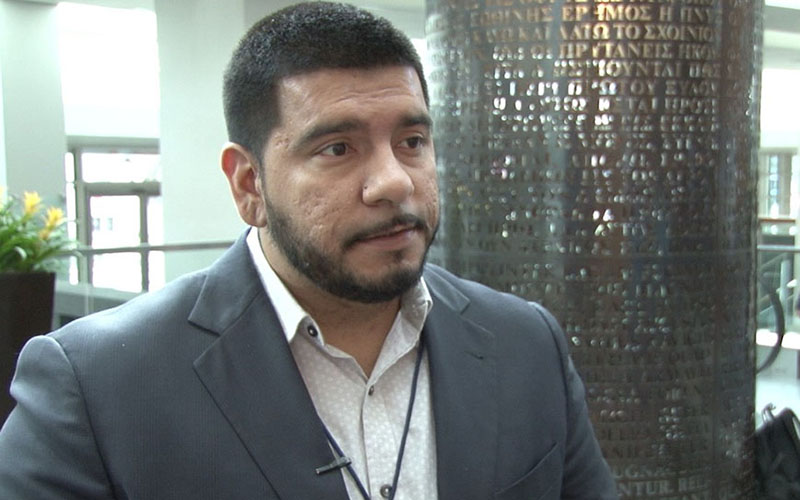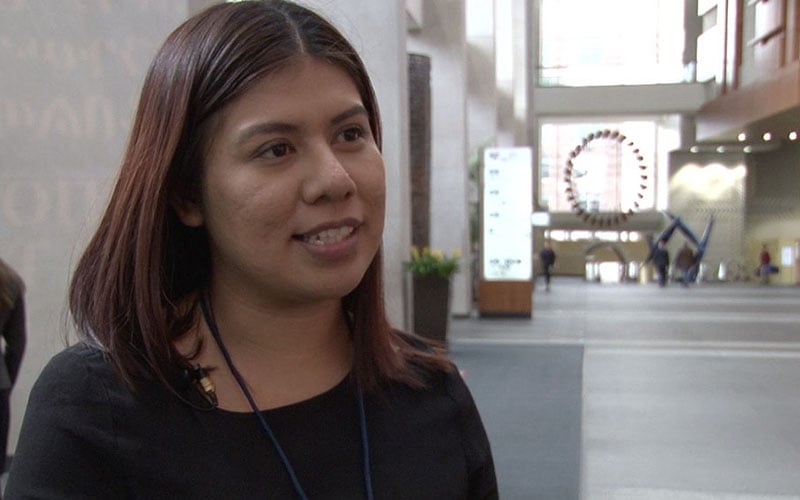WASHINGTON – Arizona may have made headlines in 2016 when voters had to wait hours in the sun just to vote in the presidential preference election, but advocates in the state said problems with voting are nothing new to them.
“Since we’ve been addressing it since 2012, there has been little to no action in actually fixing anything,” said Viri Hernandez, director at the Arizona Center for Neighborhood Leadership.
Hernandez pointed to a mix-up on Spanish ballots in 2012 on ballot due dates, and then-Maricopa County Recorder Helen Purcell’s comment last year that voters turning out were partly to blame for polling lines being so long as just two examples of what she sees as systemic problems.
Hernandez was in Washington this week with voting rights advocates from around the nation to take part in the America Votes State Summit, where voting advocates and mostly liberal groups planned strategy to reverse the “shocking” 2016 election results.
The sessions were largely closed to the press, but Arizona advocates had plenty to say afterwards.
Sarah Michelsen, executive director at voter advocacy group Arizona Wins, said the government puts too many hurdles along the path to the ballot box, discouraging voters from fulfilling their civic duty.
“We set up so many barriers, so many different roadblocks and steps that you have to take to get yourself to go vote, but it’s a constitutional right,” Michelsen said. “We really shouldn’t be putting up all these roadblocks and having a system that’s not modern enough to accommodate what we need in these times.”
She pointed to voting systems in Oregon, California, Canada and many European countries that use automatic voter registration to expedite and ease the voting process.
“We have your data – we don’t need to collect your driver’s license and name and address time and time again, every time you move,” Michelsen said. “That burden should really be on the state, when we already have your information, to just update your voter registration. This shouldn’t be hard.”
She said recent attempts by the state to fix voting issues have fallen short because the changes did not focus on “what people actually need, they centered it around cutting costs, which was the wrong method.”
But Tomas Robles, co-executive director of Living United for Change in Arizona, said that rather than trying to ease the process, state lawmakers are trying to quiet the voices of voters through legislation like HB 2404.
The 14-page bill would impose strict new requirements on groups that pay people to collect signatures on petitions for statewide ballot initiatives. Those require background checks for the collectors, training classes, registration and a registration fee for each collector, a bond of up to $50,000 and a statement that the organizers would be liable for any violations committed by the collectors, among other changes.
But supporters of the bill, like Tempe Chamber of Commerce President Anne Gill, said it is designed to protect Arizona voters, not to muzzle them.
“It requires anyone who is paid to collect signatures for a statewide initiative to provide certain information to the secretary of state before they can gather signatures,” Gill said. “We believe it strengthens the integrity, accountability and transparency of the initiative process.”
Robles said Arizona voters need to get involved in local elections, both by getting out to vote and by holding their state legislators accountable.
“Give them (state legislators) a call, let them know that suppressing voter rights is wrong and changing the Constitution of Arizona is wrong,” Robles said. “We have to let them know that if they’re going to try to actively suppress our vote, we need to get them out of office.”
Despite the challenges, advocates say they do see some hope on the horizon, pointing in particular to current Maricopa County Recorder Adrian Fontes, who ousted Purcell in November’s general election. She had held the office for almost three decades.
Fontes said he will reach out to minority communities that have been overlooked in the past to get them more involved in the voting process for all elections, not just the marquee ones.
“Just reaching out in the first place and helping people in those communities get the information they need to make informed decisions as citizens is going to help the people in those communities to feel more empowered and encourage them to get out and vote,” he said, before adding that he intends to take that message of participation to all groups in the county.
Hernandez said there is still work to be done, but that having a new recorder is a step in the right direction.
“I think that now, for the first time, there is an opportunity to make sure that everyone’s rights are supported and are maintained and that people have the right to vote without any issues,” she said.


